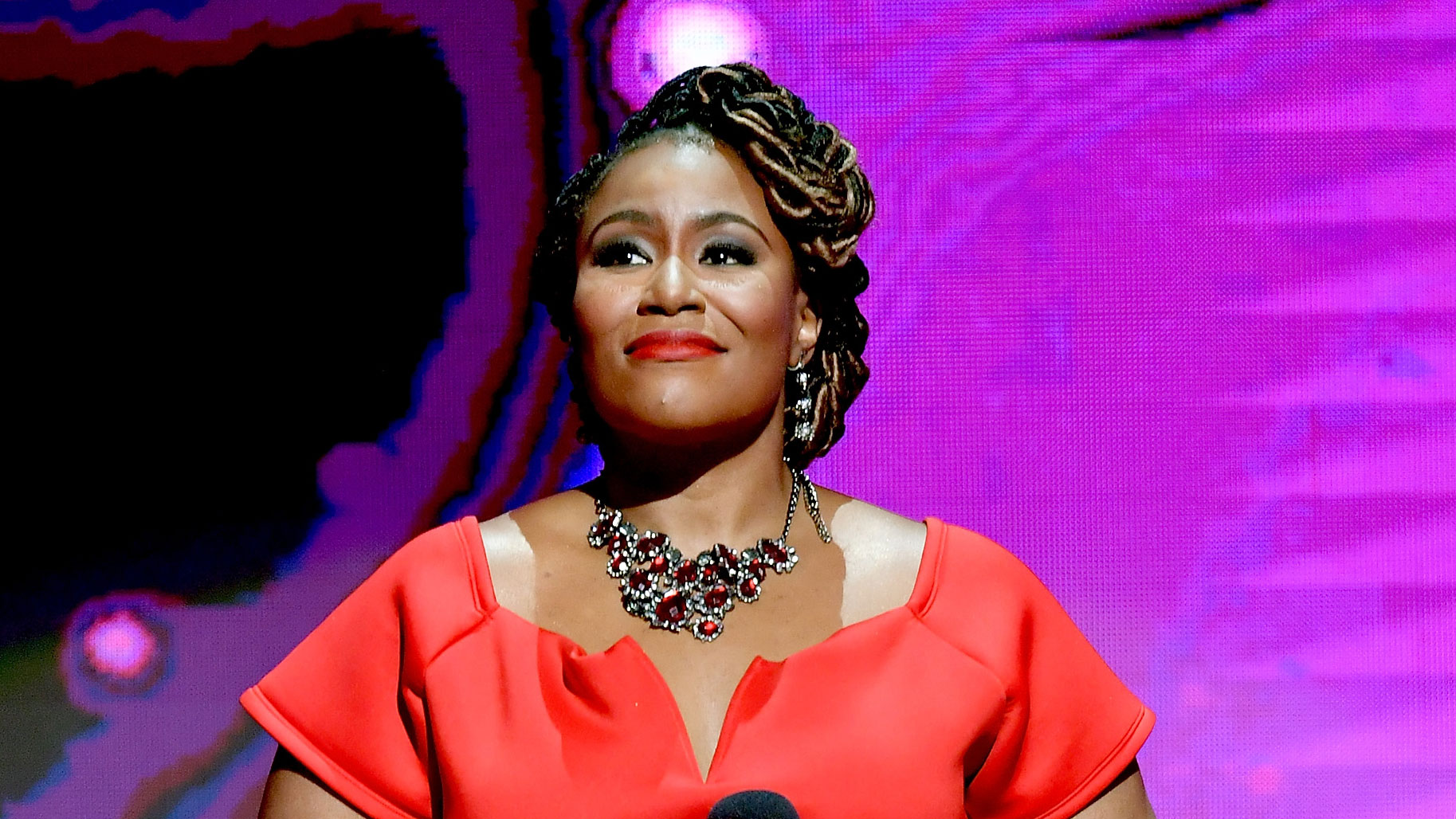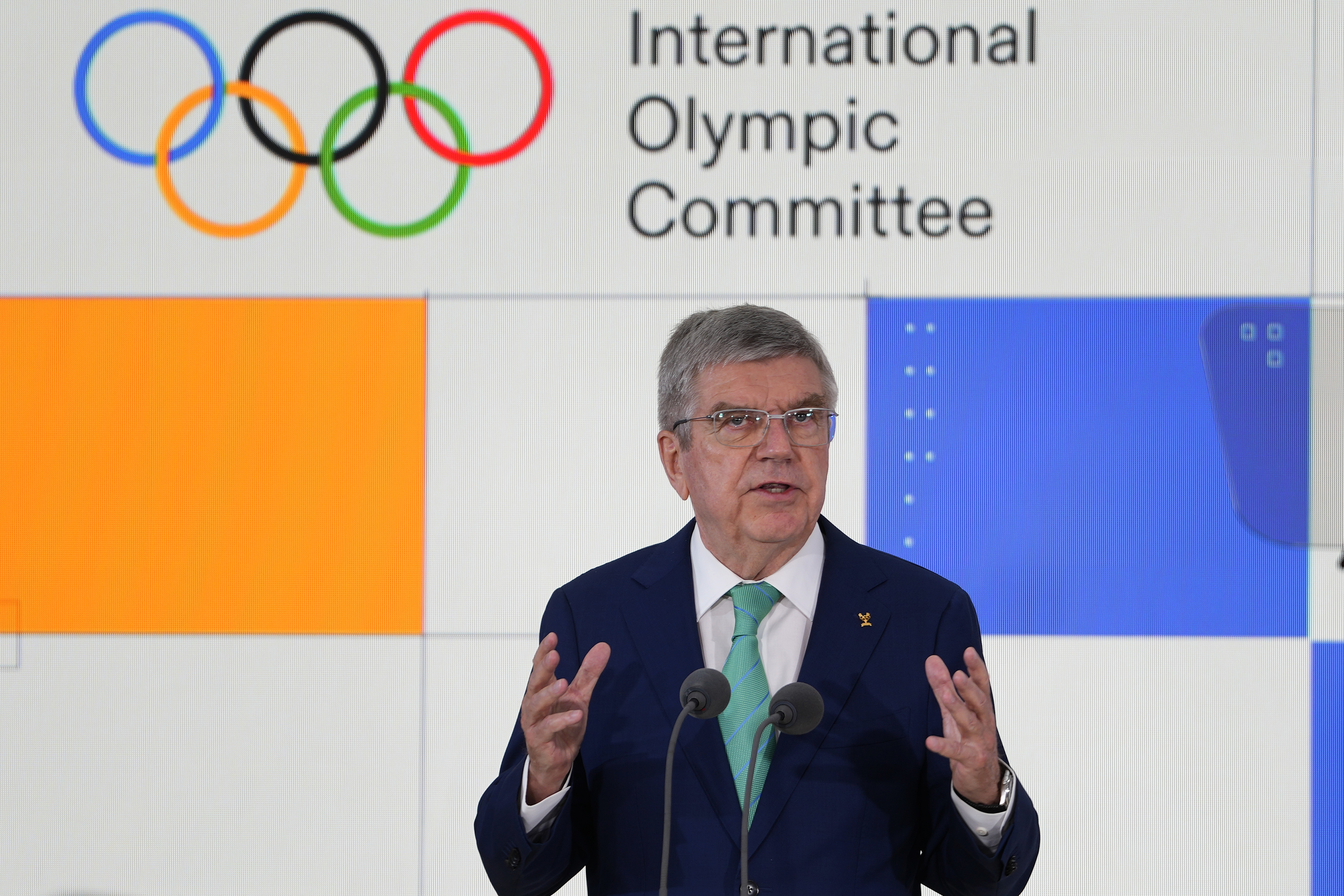RIO DE JANEIRO – Kohei Uchimura rejected comparisons to Michael Phelps and Usain Bolt after padding the argument (not his, but that of many on his behalf) that he is the greatest gymnast of all time.
“Michael Phelps, Usain Bolt, everybody in the world knows these names,” the Nagasaki native said after winning his second straight Olympic all-around title Wednesday, “but Kohei Uchimura, who is this man?”
In success alone, he is to gymnastics what Phelps has been to swimming and what Bolt has been to sprinting. Eight Olympic or world all-around titles in eight years.
The global fame is not comparable, but Uchimura’s personality suggests he prefers it that way.
Of course he is adored in Japan, and, especially, by a group of 13 people who stood, or sat on their seat edges, in section 106, row B on Wednesday evening.
The ring leader, mother Shuko, fainted in between chairs when the arena learned her son had overtaken Ukrainian Oleg Verniaiev for gold by .099 of a point after the last routine.
Japanese photographers rushed to capture the moment as she was helped up by friends and family.
U.S. & World
“I don’t know why my mother fainted, but it’s something she just did,” Uchimura said, smiling through a translator, when he was notified a half-hour later. “Sometimes you just don’t know why parents behave in the way they do.”
Uchimura clearly takes after his mother in many ways.
Shuko and her husband, Kazuhisa, were gymnasts who opened their own gym when Uchimura was 3 years old. Uchimura began competing at age 6, and younger sister Haruhi followed.
He finished last in that first competition and took longer to learn a back handspring than any gymnast in his age group.
Yet Uchimura soon became immersed. He sketched new skills in a notebook, practicing them on the family trampoline and visualizing them by contorting a stuffed animal.
Gymnastics meant so much to him that he cried in first grade when he forgot his floor exercise routine.
At 15, he left Nagasaki to train in Tokyo and soon developed into the world’s greatest gymnast.
At 19, he earned the 2008 Olympic all-around silver medal. He hasn’t lost a major all-around since, taking two straight Olympic titles and six world titles (no other man or woman has more than three world all-around titles, but all of the previous men to win multiple Olympic all-around crowns competed in an era without annual world championships).
“He is a legend,” Verniaiev said.
Uchimura would never call himself a legend. He says Belarus’ Vitaly Scherbo, winner of six gold medals at the 1992 Barcelona Olympics, is the greatest of all time.
Uchimura is a man who rejects the hero worship and values his privacy. He is married with two daughters, but has chosen not to reveal the names of any of them to the public. There is no personal life section on his Wikipedia page.
Uchimura’s early development as a gymnast was hindered by his uneasiness with being spotted by a coach.
"Kohei doesn't like to be touched,” his mom once told Japanese media.
His shyness separates from the shrieking Shuko, who made headlines in 2014 for competing in gymnastics meet herself. She is short and thin but hands-on.
Before competition began Wednesday, Shuko had her own way of laying out banners and photos and brought with her a large shopping bag, backpack and fanny pack filled with the necessary items to cheer on her son and countryman Ryohei Kato.
It took about a half-hour of prep, with the help of others, to make everything just so.
Once the meet started, Shuko spent most of it siting on the edge of seats 16 and 17 in row B. Before all six of Uchimura’s routines, she would scream his name.
And just before he mounted, she would do something quieter. Something more Kohei-like.
Shuko carefully turned around to a seat back, where she had taped a pocket-sized photo album of maybe 10 pages. The album, which showed considerable wear, was open to two images, one each of a different older man smiling next to a young boy.
They were Uchimura’s grandfathers, said one of the members of the 13-strong contingent.
Shuko reached her hand down and turned her palm away from the seat. She grazed the photos with the back of her hand, as if caressing a baby’s bottom.
Then she turned back around and waited for Uchimura to go. Shuko couldn’t bear to watch her son’s routines most of the time, hiding her eyes behind one of those large banners, which she held outstretched in her arms for most of the two-and-a-half-hour competition.
“I’m nervous,” said Shuko, who speaks little English and whose black bangs draped over a white bandana with the Japanese flag emblem. “I cry.”
Her son did not appear to shed tears on the medal stand after the closest victory of his King Kohei reign on Wednesday. He gives away little emotion.
His most outward display may have come after last year’s world all-around title, when he forcefully counted to six with his fingers in front of a video camera.
Jonathan Horton, a two-time U.S. Olympic medalist who is an NBCOlympics.com analyst during these Games, remembered Uchimura as a finger-waver way back at a camp in Japan in 2004.
He relayed this story via email:
“The last day of camp, both teams have really kind of started to relax, and I look over and there is this 16-year-old kid jumping on trampoline doing some pretty awesome stuff. Me being me, I had to go join ‘cause I used to be pretty crazy on tramp. Anyways, this kid starts doing like perfect form quintuple twisting doubles into a resi pit. So I try it, and can't do it like him, but he still gives me a huge thumbs-up and a smile like he couldn't believe anyone else would try what he was doing. Of course all my team starts watching me and this kid just doing the hardest and might I add dumbest stuff ever, but they keep giving me a hard time about how his form is perfect and I just look like a sloppy American.
“So this goes on for like 30 minutes. Just back and forth and constantly one-upping each other. Finally I did a trick that he wouldn't try. I did a skill called a full twisting triple kaboom. He looks at me, laughs, waves his finger, and we all started laughing. After we finished, him and I walked onto the floor and our translator, who is also the chairman of USA Gymnastics, Yoichi Tomita, came up to him and I so we could speak. Long story short, he told me I was crazy. I told him he was crazy. Then he said my name is Kohei. I told him mine and he said to me I will never forget you.”
Uchimura’s name will be remembered long past his retirement, which is expected to come after the 2020 Tokyo Olympics.
Uchimura has said he is inspired by Bolt, that he admires Bolt’s coolness and stating that he wants to be a legend.
“I can’t say that myself,” of being a legend, Uchimura told the BBC in 2013.
Phelps, meanwhile, has long said his goal has been to change the sport of swimming. He has certainly done that, increasing its presence and popularity.
Uchimura would like to do the same.
“Not my name,” Uchimura said, “but I really hope gymnastics will be as famous as swimming by Phelps and running by Usain Bolt.”



